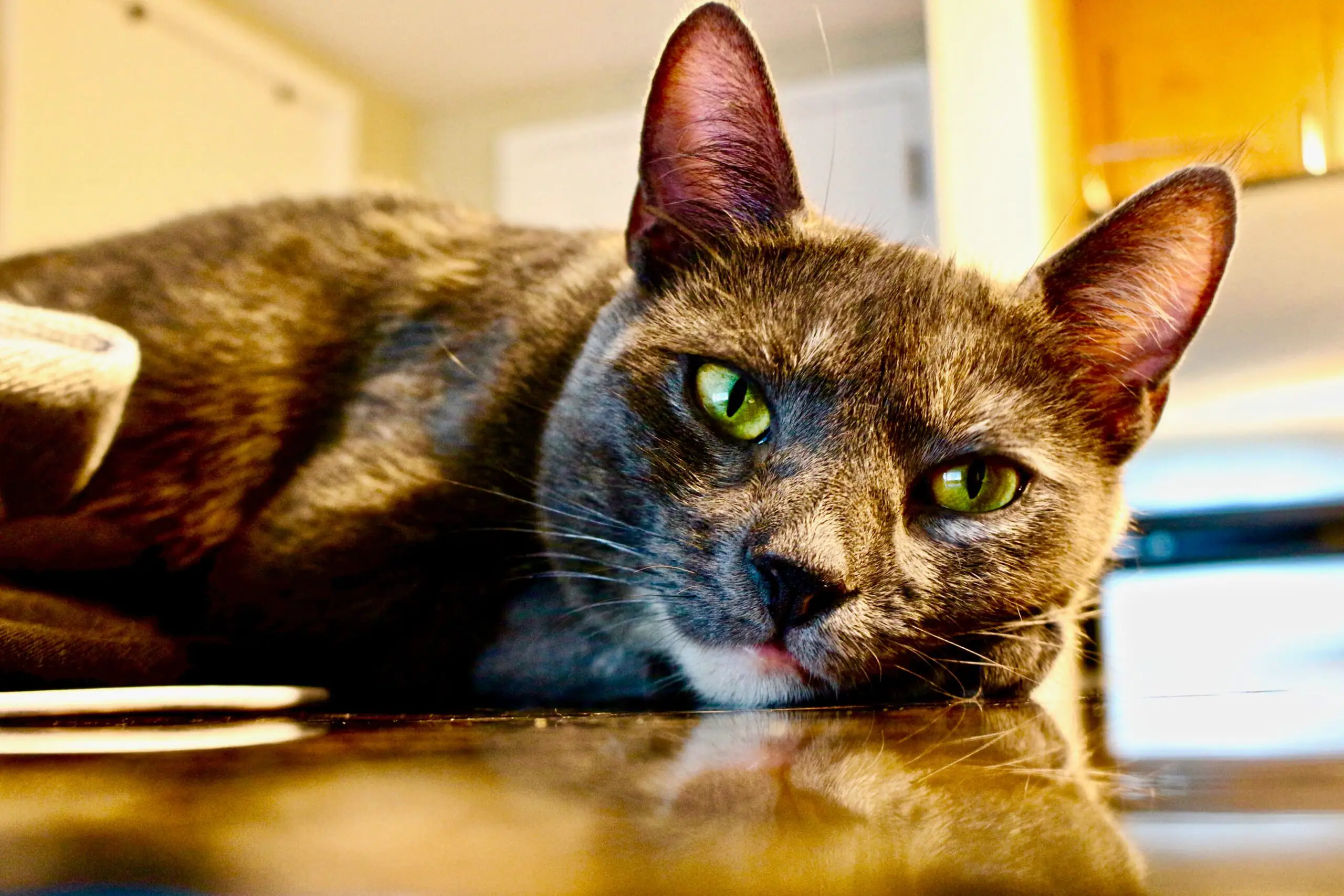Table of Contents
When it comes to cat health, one of the most common concerns that owners have is when their cats’ ears feel hot. This could be a sign of anything from infection or irritation to something more serious.
It’s important for all pet parents to know what causes my cats ears hot and how best to diagnose and prevent this condition in order to ensure their beloved fur babies stay healthy and happy!
In this article we’ll cover the causes, diagnosis, and prevention of hot ears in cats so you can take action quickly if your feline friend starts feeling warm around the ear area.
Table of Contents:
Causes of Hot Ears in Cats
a. Infections: Hot ears in cats can be caused by bacterial, fungal or yeast infections. Bacterial infections are the most common cause of hot ears and often occur when bacteria enters the ear canal through an injury or scratch. Fungal and yeast infections may also cause hot ears if they spread to the ear from other parts of the body such as skin folds or paws.
b. Allergies: Allergic reactions can lead to inflammation in a cat’s ear canal which causes heat buildup and discomfort for your pet. Common allergens that trigger these reactions include dust mites, pollen, fleas, food ingredients and certain medications.
c. Heatstroke: Cats with thick fur coats are more prone to heatstroke due to their inability to cool down quickly enough when exposed to high temperatures for extended periods of time. If left untreated, this condition can lead to hot ears as well as other serious health issues such as organ failure or death in extreme cases.
Diagnosing Hot Ears in Cats
A physical examination is the first step in diagnosing hot ears in cats. During this exam, your veterinarian will check for any inflammation or tenderness of the ear canal and surrounding area.
They may also take a swab from inside the ear to look for signs of infection. If there are any changes in skin color or texture, they may perform additional tests to determine the cause.
Blood Tests and Imaging Tests: Blood tests can help identify underlying conditions that could be causing hot ears in cats such as allergies, thyroid disease, diabetes or other medical issues.
Imaging tests such as X-rays or ultrasounds can also provide valuable information about what’s going on inside your cat’s body and help rule out certain causes of hot ears like tumors or foreign objects lodged within the ear canal.
Skin Scraping and Cytology Tests: Skin scraping is a procedure used to collect cells from an affected area which can then be examined under a microscope by a pathologist to look for evidence of infection or other abnormalities.
Cytology testing involves collecting fluid samples from within the ear canal which are then analyzed for signs of bacterial infections, yeast overgrowth, parasites or other diseases that could be causing hot ears in cats.
Prevention of Hot Ears in Cats
Vaccinating your cat against common illnesses is an important part of keeping them healthy. Additionally, regular deworming treatments can help prevent parasites from causing hot ears in cats.
It’s also a good idea to use flea and tick prevention products regularly as these pests can cause skin irritation which may lead to hot ears.
Grooming and Cleanliness Habits: Keeping your cat’s fur clean and free of debris will help keep their ears cool. Regular brushing helps remove excess fur, dirt, and other particles that could trap heat near the ear canal.
You should also check your cat’s ears weekly for any signs of infection or inflammation such as redness, swelling, or discharge.
Environmental Temperature Control: Hot temperatures can make it difficult for cats to regulate their body temperature leading to overheating which can cause hot ears in cats.
Make sure you provide plenty of shade during warm weather months so they have somewhere cool to rest away from direct sunlight or high temperatures indoors due to appliances like ovens or heating units running constantly during cold weather months .
Providing a balanced diet with adequate amounts of protein, fat, carbohydrates, vitamins, minerals and water is essential for overall health including preventing hot ears in cats. Foods rich in omega-3 fatty acids are especially beneficial as they support skin health which helps protect against infections that could lead to hot ears.
Conclusion
In conclusion, hot ears in cats can be caused by a variety of factors. It is important to take your cat to the vet if you notice that their ears are hot so they can receive an accurate diagnosis and treatment plan.
Prevention of hot ears in cats includes keeping them away from extreme temperatures, providing them with adequate shelter, and ensuring they have access to clean water. If you suspect that your cat’s ears are too hot, it is best to consult a veterinarian for further advice on how to address the issue.
By following these steps, you can help ensure that your cat stays healthy and happy – no matter what “my cats ears hot” may indicate!
If your cat’s ears feel hot to the touch, it may be a sign of an underlying health issue. To help keep your furry friend healthy and happy, we are here to provide you with information on why cats’ ears can become hot as well as tips for prevention and treatment options.
With our pet website resources, you’ll have all the tools necessary to give your cat the best care possible! Don’t wait any longer – start exploring our site today so that you can get started helping improve your beloved pet’s wellbeing right away.

